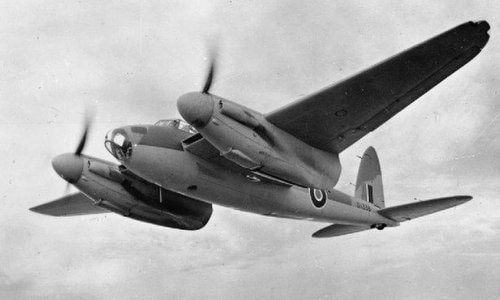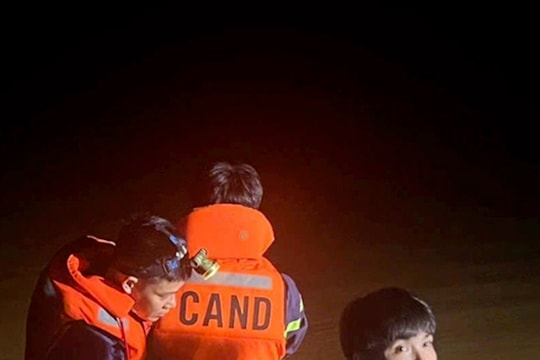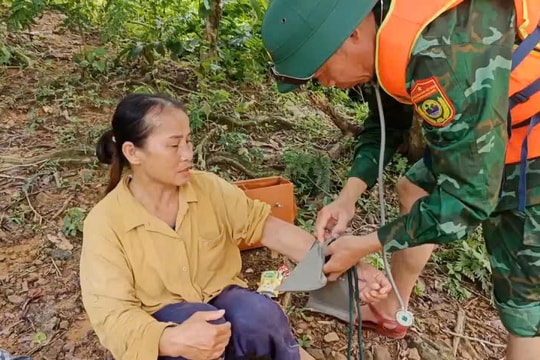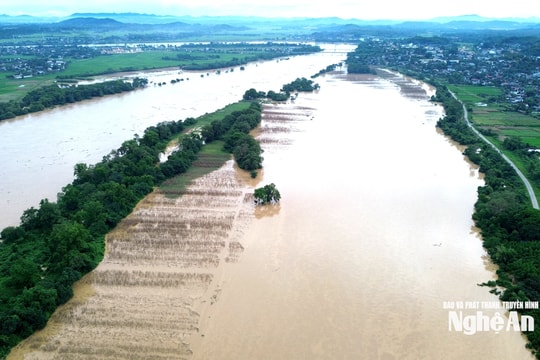The British Air Force's disastrous rescue in 1944
The British Air Force attacked the Nazi German prison of Amiens to rescue prisoners, but caused many deaths.
|
Mosquito aircraft participating in airstrikes (left) and Amiens prison. Photo:War History. |
On February 18, 1944, the British Air Force launched Operation Jericho, attacking the Nazi German prison Amiens in France with the goal of freeing prisoners held there. However, the operation quickly turned into a bloody disaster when more than 100 prisoners were killed, according toWar History.
The heavily guarded Amiens prison held 717 prisoners, including French resistance fighters and politicians who had been arrested for supporting the resistance against Nazi Germany. British intelligence believed that the Germans had begun executing prisoners and were preparing to kill 100 people on February 19, 1944.
Operation Jericho was scheduled to begin on February 10 under the command of Air Vice Marshal Basil Embry, but he had to abandon his mission to join the Allied plan to retake Europe. He was replaced by Captain Percy Charles Pickard, an experienced pilot who had little experience in low-level bombing.
According to the plan, the DH 98 Mosquito light fighter bomber squadron would approach Amiens at low altitude and attack the Amiens prison. This type of aircraft was considered suitable for the mission, because they could attack accurately and collapse the walls to allow prisoners to escape, without causing collateral damage like heavy bombers. The pilots were also ordered to bomb the cafeteria at lunchtime to cause maximum casualties to the guards.
The mission was launched on February 18. Weather conditions were poor, with heavy snow falling across Europe, but the mission had to go ahead because the prisoners were due to be executed the following day. The RAF assessed that the airstrike would kill some of the prisoners. However, they attacked anyway, because many of them had been sentenced to death, making it less important to die a day earlier or later.
|
British Air Force Mosquito aircraft. Photo:RAF. |
The main squadron consisted of 18 Mosquito fighters and one aircraft equipped with a camera to record the entire raid. That made Jericho one of the rare operations witnessed on film. The squadron was commanded by Captain Pickard, who would conduct the second attack and assess the enemy damage. At 8:00 a.m. on February 18, the squadron was briefed on the target and the mission.
Taking off in bad weather caused a series of problems before the British aircraft reached their target. Four Mosquitoes became lost and lost contact, while another suffered engine failure. These aircraft had to return to base, reducing the initial attack wave to four aircraft instead of the planned nine. The rescue mission was more risky than expected, as the RAF had to attack in one wave instead of two.
At midday, the raid began. Three Mosquitos targeted the walls, using bombs timed to explode after 11 seconds. They breached the outer wall in the first attack, but had to circle back to attack again. Two others bombed the train station, denying the enemy reinforcements and giving the prisoners a chance to escape.
By 12:06, the eastern wall of the prison had not yet been breached. The Mosquito planes flew at an altitude of just 15 meters above the ground and continued to bomb. In the second wave, two planes dropped 230 kg bombs on the central detention area, killing many guards and prisoners. At this point, the prisoners began to escape.
Captain Pickard judged the mission a success and ordered a return to base. On the way, the British squadron encountered a series of German fighters. Pickard's plane was hit and crashed, killing his two-man crew.
Of the 717 prisoners, 102 died during the raid, most of them shot by guards as they tried to escape. Some 255 escaped, including 79 resistance fighters, but 182 were recaptured within the next 48 hours.
|
Amiens prison damaged after air raid. Photo:War History. |
French historian Jean-Pierre Ducellier, who has spent years studying the Amiens prison raid, says it was an unnecessary effort and that the British military's stated reason was not the real reason. The French Resistance did not request a bombing raid to rescue prisoners, nor did it pass on information about the prison until London asked. In fact, no executions took place before or after the raid.
The person who ordered Operation Jericho remains a mystery. The head of the Special Operations Executive (SOE) in France, Maurice Buckmaster, denied that his agency was behind the attack. Buckmaster claimed that the British Secret Intelligence Service (MI6) was responsible, but this claim has never been verified.





.jpg)

-fe16adf10acb4c4835f89a039f89b34b.jpg)

.jpg)

